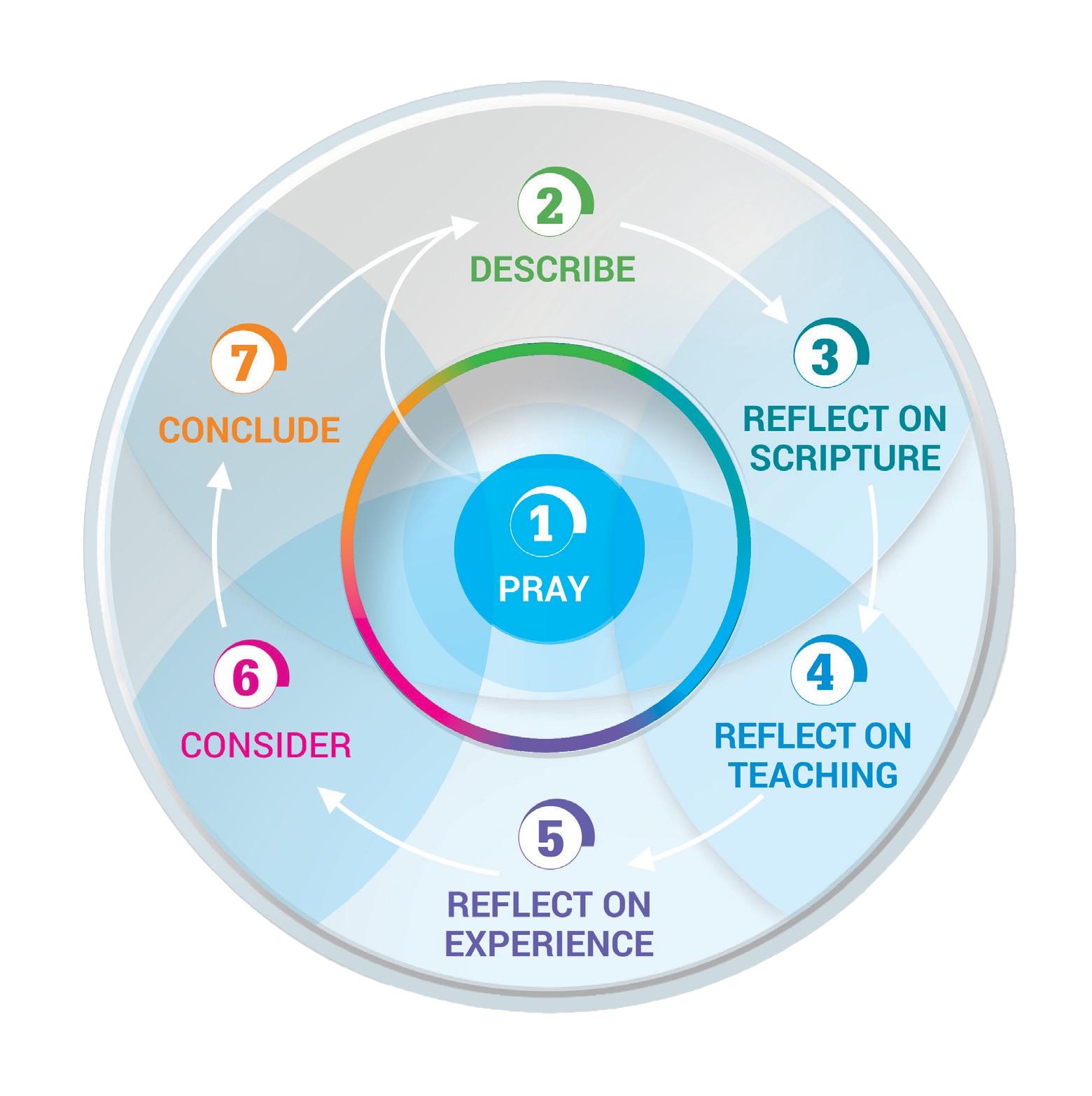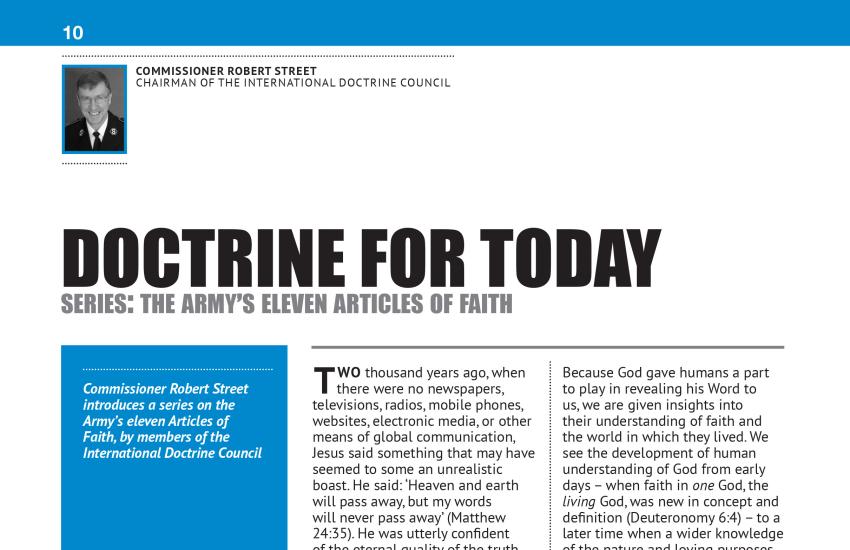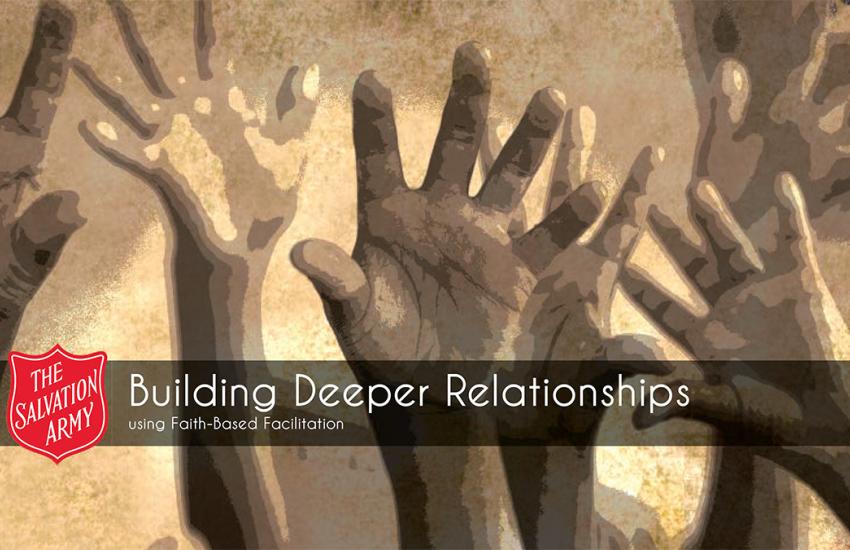© Copyright The General of The Salvation Army, November 2020.
Tools for Theological Reflection
Seven practical steps to develop your own practice of theological reflection.

All those who follow Jesus are, to some extent, theologians. Many people would not describe themselves in this way, but consider these questions:
- Do you spend time in personal reflection and prayer, thinking through what God wants you to do in your life?
- Do you grapple with different Bible verses when faced with a particular problem?
- Do you discuss issues in your community and wider society with other Christians?
These all evidence the work of a practical theologian. Theology is not just for the classroom – it takes place in the home, in the street and in Salvation Army corps and centres every day around the world.
This kind of theology is the work of a lifetime for every Christian as we try to understand what God is doing amongst us and to think carefully before we act. The key question is not whether we do it, but how we can develop and sharpen our own practice of theological reflection.
Tools for Theological Reflection
Download the guide from the International Theological Council:
Below are seven practical steps designed to help you – but before you begin, it is important to consider two things:
- Theological reflection is an ongoing cyclical process, not simply a set of steps to follow.
As you can see, the aim is to go on a journey of discovery. You may find yourself rushing onwards only to realise in time that you need to go back a step or two. Or you may spend some extra time focusing on one aspect in particular. That’s okay – life is messy, and so is theology! Even when you feel like you’re getting to the end, you might discover that a whole new set of questions may have arisen and you are embarking on a brand new journey. Since Christians are called to follow Jesus throughout their whole lives, it’s good to get comfortable with the idea that God is always teaching us something new.
- Theology is always best done in conversation with others. Of course, there’s lots you can do on your own, but as we read in Proverbs 27:17: ‘Iron sharpens iron, and one person sharpens the wits of another’ (NRSV).
As you set out on your journey of theological reflection, think about who would make good travelling companions and encourage them along with you.

Seven practical steps
Discover more

Ruth
Spend six weeks in the book of Ruth and increase your capacity to trust in God through all seasons.
This six-week Bible study offers a rich, day-by-day journey through themes like providence and gleaning, relationships and our response to our

Flourish
Flourish is a spiritually rich and emotionally insightful resource designed to help women deepen their intimacy with God and live rooted, joyful lives regardless of season or circumstance. Drawing from Psalm 16:11 and Psalm 42, Dr. Ingrid Davis

Living by Faith Today
Reflections on the Soldiers' Covenant and what it means for our behaviour, lifestyle and relationships.

Doctrine for Today
Explore The Salvation Army's 11 Articles of Faith in greater depth with members of the International Doctrine Council.
Taking a Stand
Addressing the complex issues contained in The Salvation Army's International Positional Statements. The articles are written by various members of the International Moral and Social Issues Council and deliberately reflect, in some measure, a

Book
The Salvation Army Handbook of Doctrine
A guide to The Salvation Army's 11 Articles of Faith


